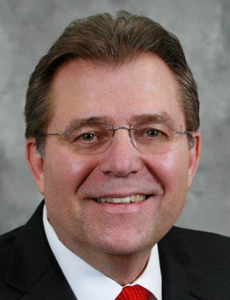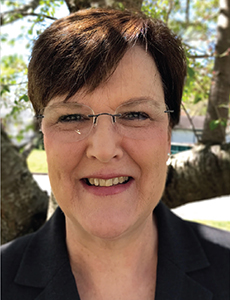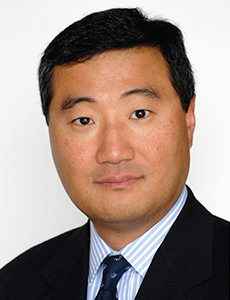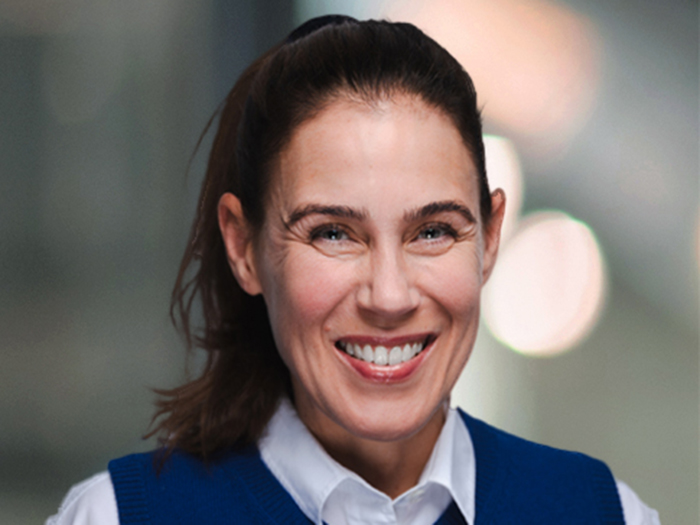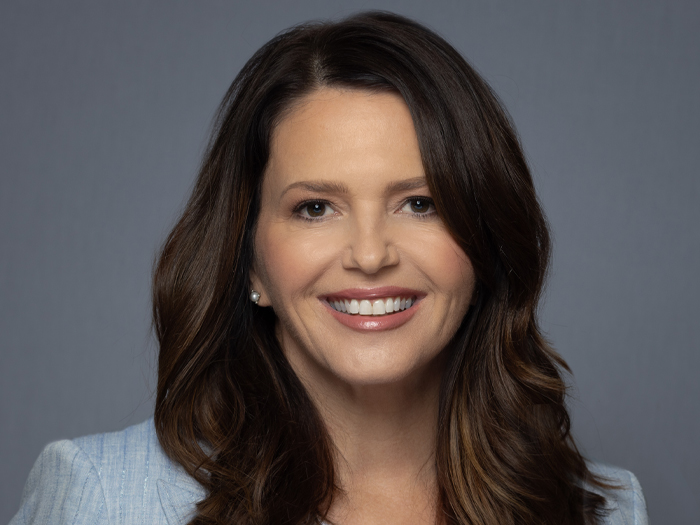Risk Manager Focus
Better Together

Michael K. Sheehan, (left) Managing Director, Marsh and Grant Barkey, Director of Risk Management, Motivate International Inc.
Ask a broker what they can do for you and they will tell you. But let’s ask the risk manager.
What do risk managers really need in a broker? And what do the best brokers do to help risk managers succeed in their jobs?
Risk managers say it’s a broker who helps them look knowledgeable and prepared to their bosses. It’s someone who sweeps in like a superhero with an ingenious solution to a difficult problem.
Risk managers want to see brokers bring forth better products year after year. They want a broker who shows up at renewal time with new ideas, not just a rubber stamp.
Great brokers embed with the risk management team and learn everything they can about the company and its leaders. They help risk managers prepare and keep tabs throughout the year on changes at the organization with an eye towards planning the future.
“There’s the broker that sees themselves as just a hired ‘vendor,’ or I should say, somebody that basically just does the job at hand,” said Chet Porembski, system vice president and deputy general counsel at OhioHealth Corp.
“And then there’s the broker that views themselves very much as a business partner. They truly bring added value to the relationship.”
These brokers look at the tough issues the risk manager is facing and bring in the resources to try to help their client in ways even the client might not have thought about yet. They also do advanced planning that makes the risk manager’s job easier when a problem arises.
“That’s the kind of broker I want.” Porembski said.
And that’s the kind of broker many risk managers need more than ever.
“The only way that the relationship is going to be successful is if you build a tremendous amount of trust.” — Frances Clark, director of risk management and insurance, Sentara Healthcare
That’s because risk managers are under increasing pressure these days. They carry more weight as corporations shrink their departments to cut costs.
Climate change, cyber threats and geopolitical shifts are turning what were once unthinkable losses into risks that are almost commonplace. And this is all happening in an under-insured risk environment, according a study by PwC entitled Broking 2020: Leading from the Front in a New Era of Risk.
Thankfully there are good brokers out there, risk managers say, who can bring more value to a client today than ever before and help ease that fear.
Brokers — the traditional intermediary in the risk transfer chain — do in fact have a tangible and growing role in developing viable and innovative solutions for the risk manager, according to PwC’s study.
They are the “global risk facilitation leaders.”
“[Whatever] organizations are doing in the short term — be this dealing with market instability or just going about day to-day business — they need to be looking at how to keep pace with the sweeping social, technological, economic, environmental and political (STEEP) developments that are transforming the world,” PwC said in the report.
Advisors That Are Getting It Done
Cyber risks are just one growing challenge that all organizations grapple with.
Frances Clark, director of risk management and insurance at Sentara Healthcare, remembers when her broker first suggested that she hold a leadership tabletop cyber drill.
Clark said her broker kept saying, “I know this is going to be a painful experience, but you are going to come out so much better in the long run.”
Her broker was right, and went so far as to help arrange a system-wide drill that included representatives from the legal, finance, security, communications, marketing and medical teams.
They reviewed the many ways a cyber attack can happen and then practiced a response.
“We benefitted greatly from that exercise,” Clark said.
When Doctors on Demand developed a telemedicine app to offer mental health services through mobile devices, the company ran up against insurance limitations across state lines. All states require that the physician giving the advice be licensed in the same state where the patient is located.
The concern was for patient encounters where the patient actually crossed state boundaries during the encounter, due to the utilization of a mobile phone. The patient may have started with a properly licensed physician in the original state, but then crossed into a neighboring state where the physician was not licensed.
Larry Hansard, a regional managing director at Arthur J. Gallagher & Co., and a 2017 Power Broker®, worked to secure medical professional liability coverage without the traditional licensure exclusions placed on medical professionals by insurance carriers.
The initiative he helped develop actually changes how health care can be delivered to patients. It allows the emerging telemedicine sector to now offer services around the world.
Two-thirds of the risk managers in the PwC Broker 2020 survey labeled their brokers as “trusted advisors.” But the same survey found that some participants see their broker as more of a straightforward service provider rather than as a source for solutions.
The survey results indicate there is plenty of room for brokers to bring more value to clients.
OhioHealth’s brokers meet each year with OhioHealth’s risk management team to review insurance coverages. And when the health system holds quarterly risk management retreats, the brokers attend. They bring with them education and insights on a broad range of topics, from property insurance markets to cyber solutions.
Porembski’s brokers also collaborate with the risk managers when there’s an upcoming presentation on risk issues to senior management. Sometimes the brokers help prepare the presentation, he said.
“We end up looking exceptionally good to our senior leaders and our board,” he said.
Involving the broker in interactions with leaders outside the traditional risk management team has benefits beyond selling products, he said. It extends the relationship circle.
Clark tries not to think of her brokers as outside vendors just providing a service. She wants them to be as committed and knowledgeable about the organization as she is.
“The only way that the relationship is going to be successful is if you build a tremendous amount of trust,” Clark said.
“You have to be completely open and honest about everything, no matter how bad it is, or how bad it may look to the market or underwriters.”
“Once you establish that trusting relationship, I think everything else falls into place,” she adds.
Sentara underwent significant growth recently, acquiring five hospitals in about six years. The expansion required a vast amount of integration on insurance programs and a merger of risk management departments and claims.
Clark said her brokers rolled up their sleeves and expertly navigated her through the consolidation.
“I can’t reiterate enough how most risk managers don’t know how to deal with an M&A unless you’ve gone through it.”
She said she wouldn’t have been able to manage the risk of the mergers without her broker’s counsel.
Grading the Broker
Mike Lubben, director of global risk management at Henry Crown & Co. in Chicago, sets standard expectations of his insurance brokers: know the exposures, understand how a risk manager has to sell ideas internally and understand the urgency of requests.
He lets his brokers know his expectations with regular report cards, complete with letter grades. And he isn’t shy about giving out Fs.
- How did the broker service the EPLI coverage?
- Did the broker provide expertise and coverage analysis?
- Was there anything creative?
- Did the broker recommend new endorsements based on the previous exposure?
- Did the broker recommend any risk mitigation programs?
- How well did he communicate and help with presentations?
“A good broker will think this is fantastic,” Lubben said.
This method starts the conversation. It helps Lubben establish long relationships with some stellar brokers. But if the broker misses the mark, Lubben can have a talk with them about ways to do better in the future. Some brokers he has sent away.
Recently a broker failed on what Lubben calls “blocking and tackling,” the basics like returning phone calls within one day and responding promptly to emails.
Lubben gave him an “F” on those subjects and told him why. The broker still didn’t improve his game and was eventually replaced.
For many people, insurance can seem very routine from renewal to renewal. But a really good broker will break from routine and come back with some kind of enhancement or improvement.
If the renewal is flat with no change in premium, then Clark says she’ll ask, “What are you going to do for me this year?”
The best brokers are always striving for better, she said.
“Without the brokering community, you would be hard pressed to do your job. I really appreciate what the brokers do, they bring a level of expertise that we can’t possibly have on all lines of coverage.” — Mike Lubben, director of global risk management at Henry Crown & Co.
Motivate International Inc., which operates more than half of the bike share fleets in North America, went through a recent renewal.
Their broker, Marsh, explored more than 10 options with different strategies and programs. In the end, after all of that, they decided the expiring coverage was the best fit.
“Those exercises are very valuable for risk managers,” said Grant Barkey, Motivate’s director of risk management.
“As an innovative company committed to delivering best-in-class services, we believe thorough exploration leads to informed decision-making.”
A good broker understands that a company’s day-to-day operations and a highly effective risk management program have implications for what type of policy should be procured, he said.
Brokers need to partner with risk managers to figure out what those options are, and what the markets are saying and then succinctly relay the information to management.
They also need to have the tact and curiosity to inquire about future plans and figure out what resources might be needed to better serve their client.
When PwC surveyed risk managers, most put their insurance carriers and industry groups ahead of their brokers as the primary source of cyber and supply chain risk solutions; yet these areas are still cited as risk managers’ top concerns.
“Becoming the go-to partners for developing and coordinating innovative and effective solutions in these priority risk areas is at the heart of the commercial opportunity for brokers.” PwC said in its report.
“Yet, our survey suggests that these are important areas where brokers are falling short of the market’s demands and therefore need to adapt.
For example, less than a third of respondents are very satisfied with brokers’ analytical and modelling services across a range of areas.”
When participants were asked how their brokers could be more efficient, respondents put risk analysis at the top of PwC’s survey list. Significantly, more than a third also cited ‘big data’ analysis.
Finding the Right Fit
Paul Kim, Co-CBO of U.S. Retail at Aon Risk Solutions, helps match brokers to risk managers. He keeps in mind that insurance companies tend to sell product, while the clients are looking to manage risks. The right broker assists in mapping risks to existing products and also customizing broad solutions, he said.
“The risk manager’s job has become more complex in the current environment, but there are so many tools available for those individuals to make better informed decisions that truly help protect the overall risk profile of their companies,” Kim said.
That’s why finding the right broker should be first and foremost, he said. Look for an individual with strong industry knowledge, product expertise and market relationships. A strong broker is able to effectively communicate what the risk manager’s goals are to the marketplace to be able to execute and achieve those goals.
“Not every broker can do that,” Kim said.
“Not every broker is the right broker.”
PwC said those brokers who quickly master the art and science of identifying ambiguous threats and then mobilize a broad private/public stakeholder pool to economically manage those risks over time will pull ahead of their competition.
“We’re really generalist,” Lubben said.
“Without the brokering community, you would be hard pressed to do your job. I really appreciate what the brokers do, they bring a level of expertise that we can’t possibly have on all lines of coverage.”
When selecting a broker, the risk manager should also take into account the entire organization behind the broker. Ask about the additional support systems that are available to the broker’s clients.
The company should have a deep bench so when the primary broker is out of the office there’s someone else to rely on who is almost as knowledgeable. The broker organization should also be able to assist you with your budgeting and forecasting from a financial risk perspective.
In PwC’s survey of risk managers, nearly three-quarters want analytics from their broker to help inform their decisionmaking, with concerns over new and emerging risks being a strong driver for this demand.
Clark also thinks it is vitally important for a broker to offer a claims advocate, somebody on the outside, when you are dealing with a carrier on a complicated claim.
“Otherwise you are vulnerable to what the carrier says,” Clark said.
To lead in this new era of risk, it’s also important that brokers forge close relationships with a broader set of stakeholders that includes governments, academia, specialist risk consultancies and even their industry peers, PwC said in the report.
It’s also going to be important to develop shared databases and research capabilities.
In turn, brokers need to assure this diverse stakeholder group that they are the right party to lead.
Clark, at Sentara Healthcare, said she knows what her risk exposures are today, but she’d like her brokers to anticipate her needs before she does.
“It’s kind of crazy, but amazingly some of them do it,” Clark said.
The broker will also use past experience and industry knowledge to anticipate where policy terms and conditions can be tweaked and improved upon.
“They will, say, advise us that we need to change this policy language, and then a year later you have a claim on that and you thank your lucky stars that they changed it,” Clark said.
“It is amazing to me every time it happens.” &

